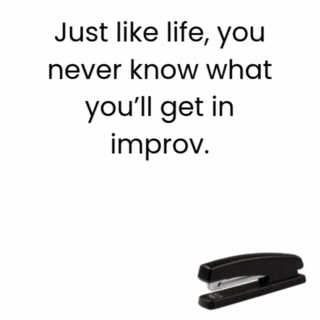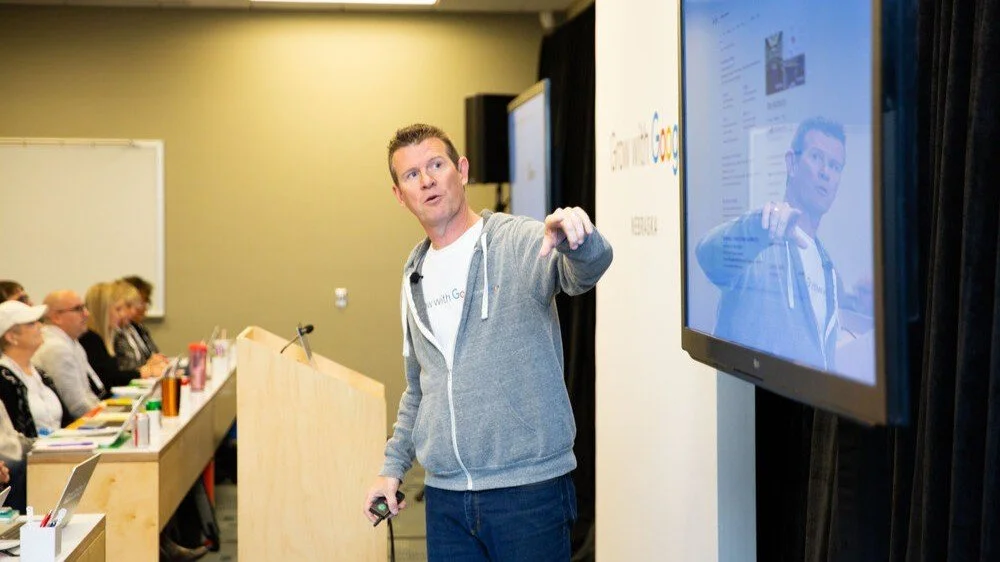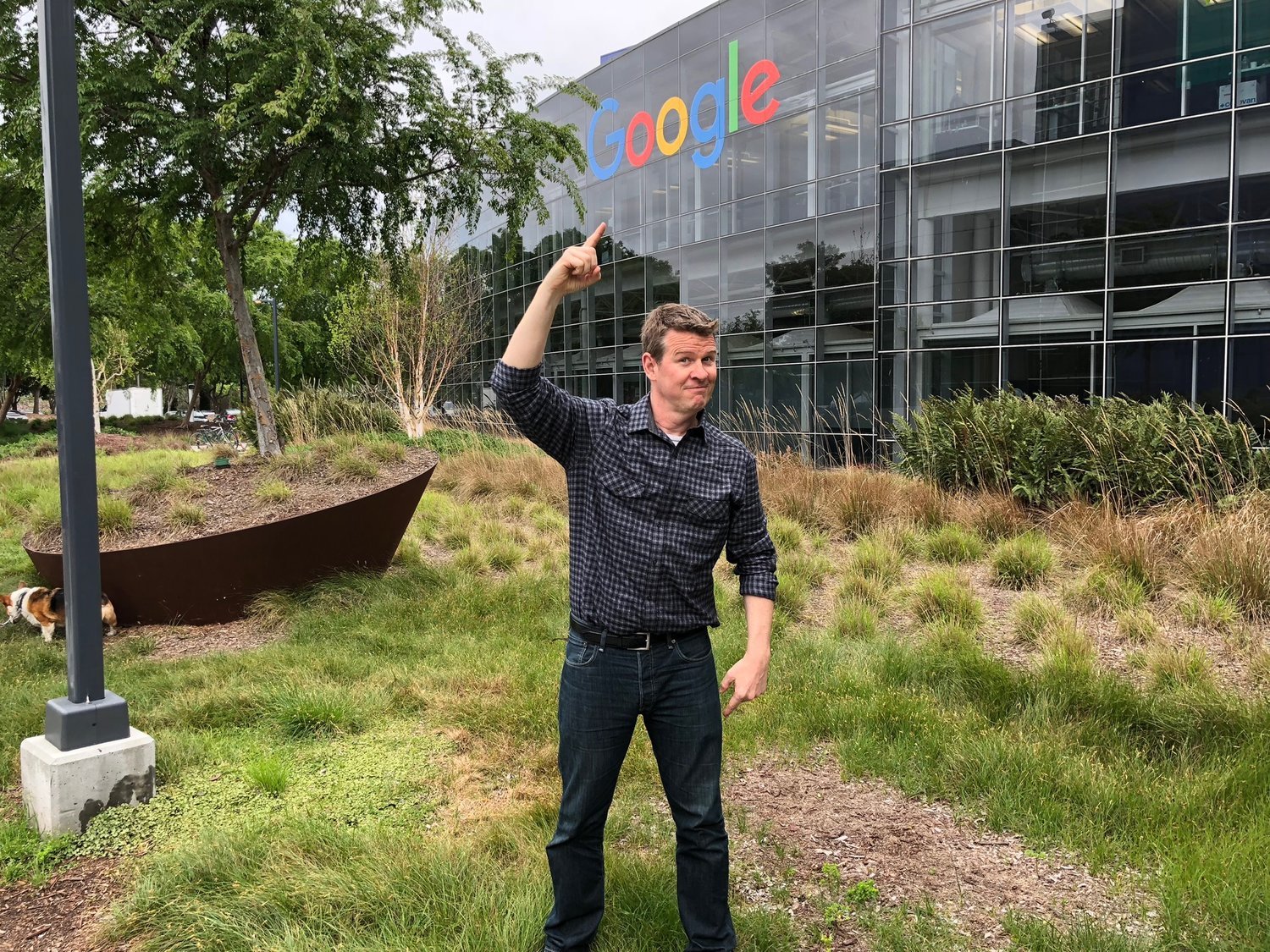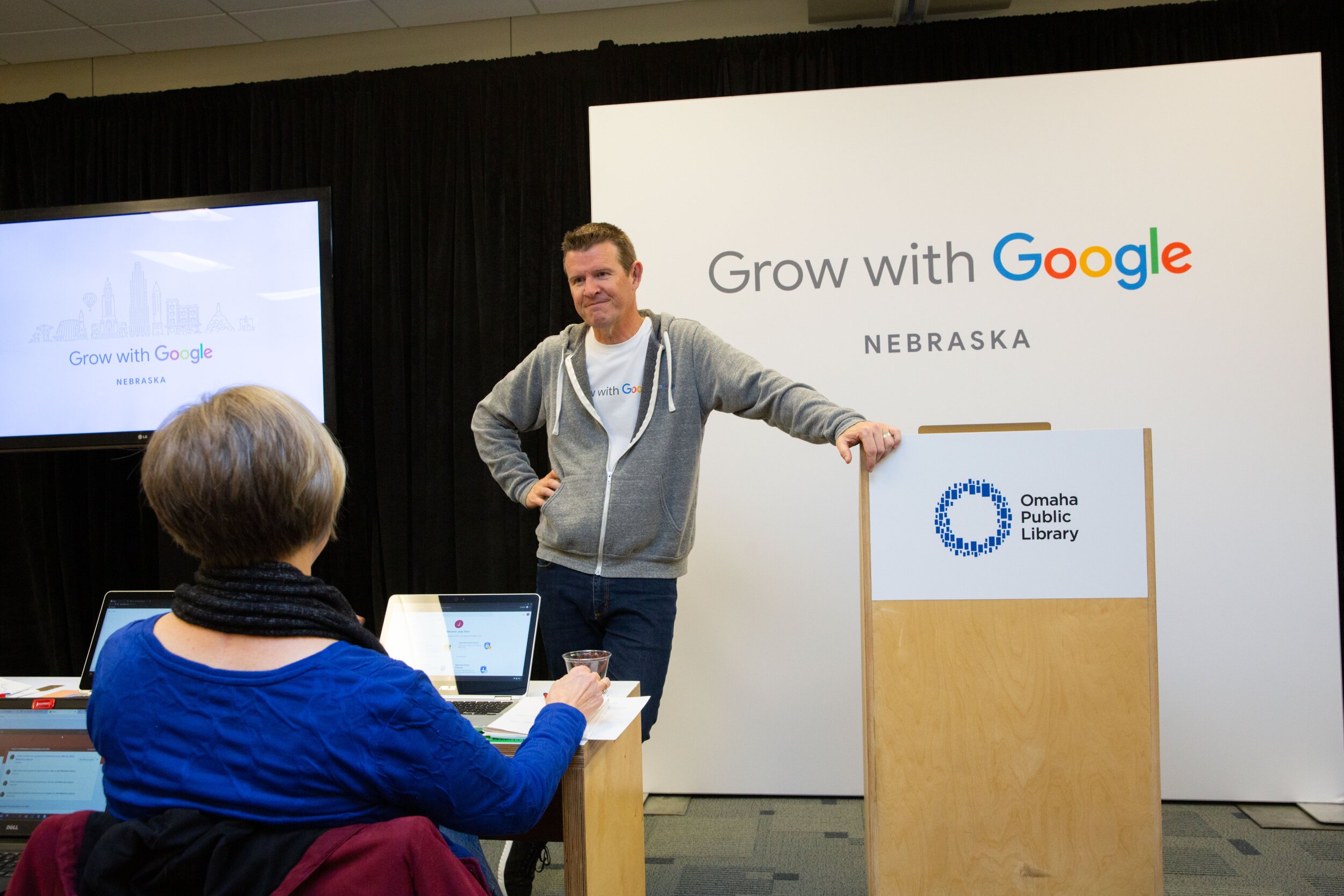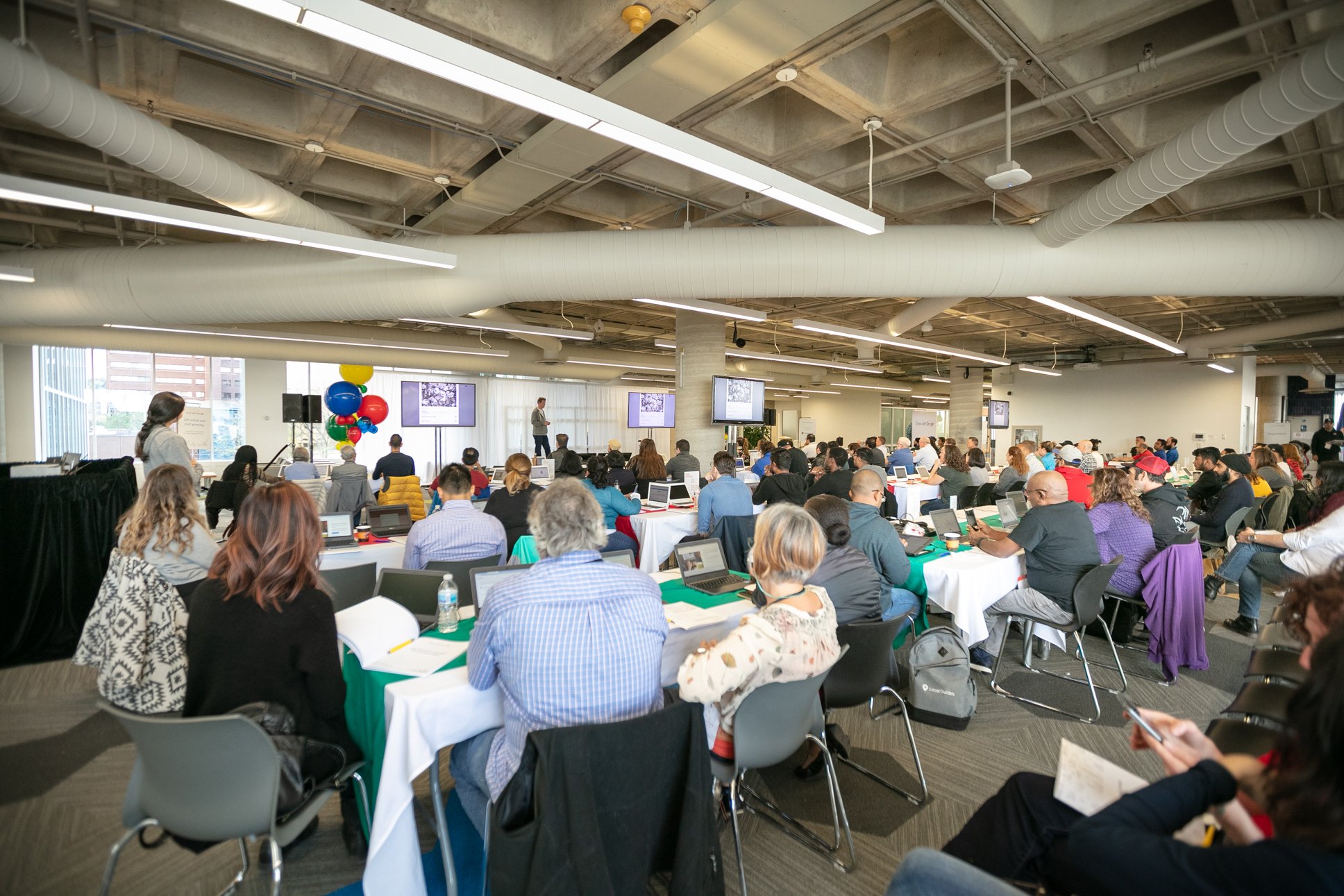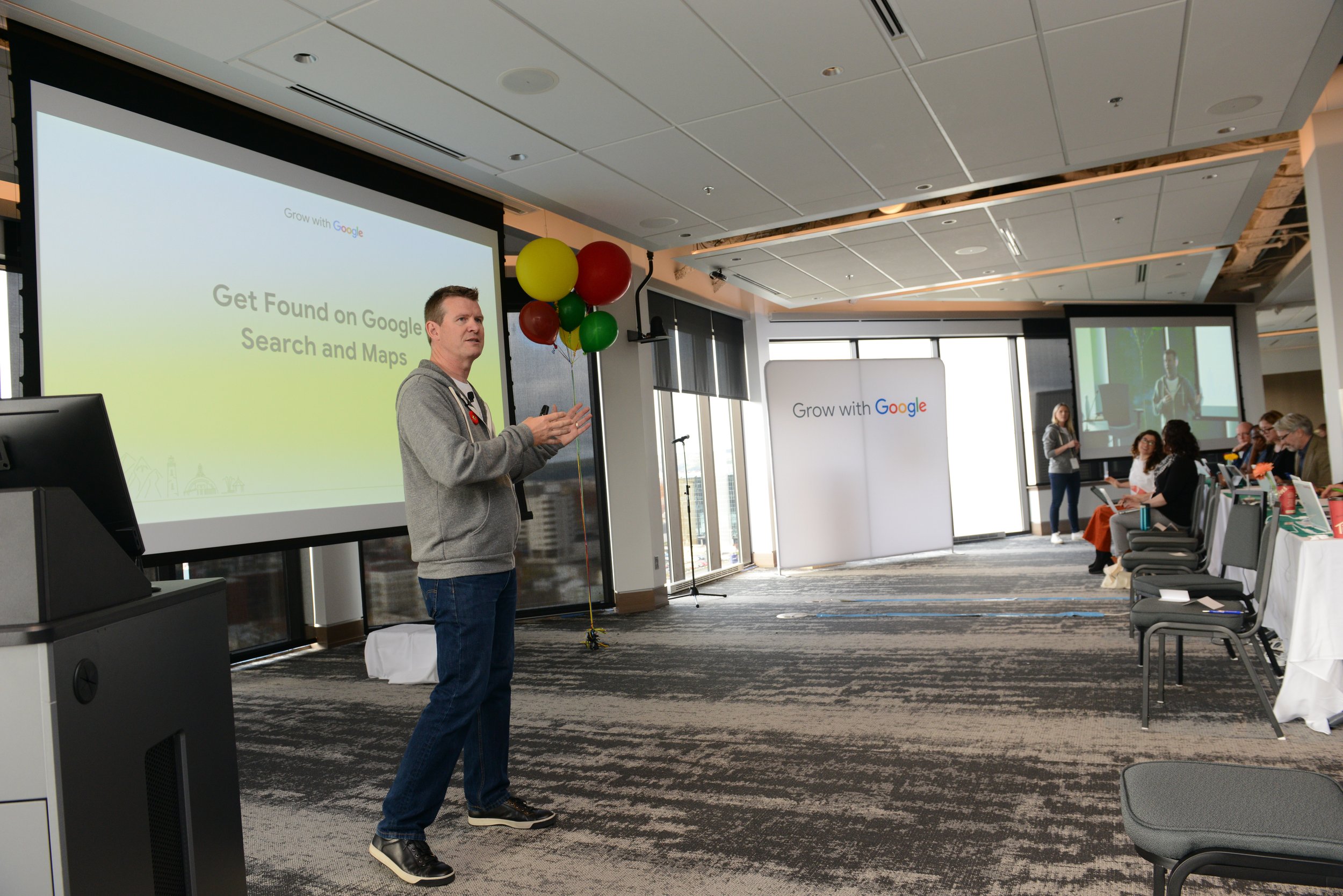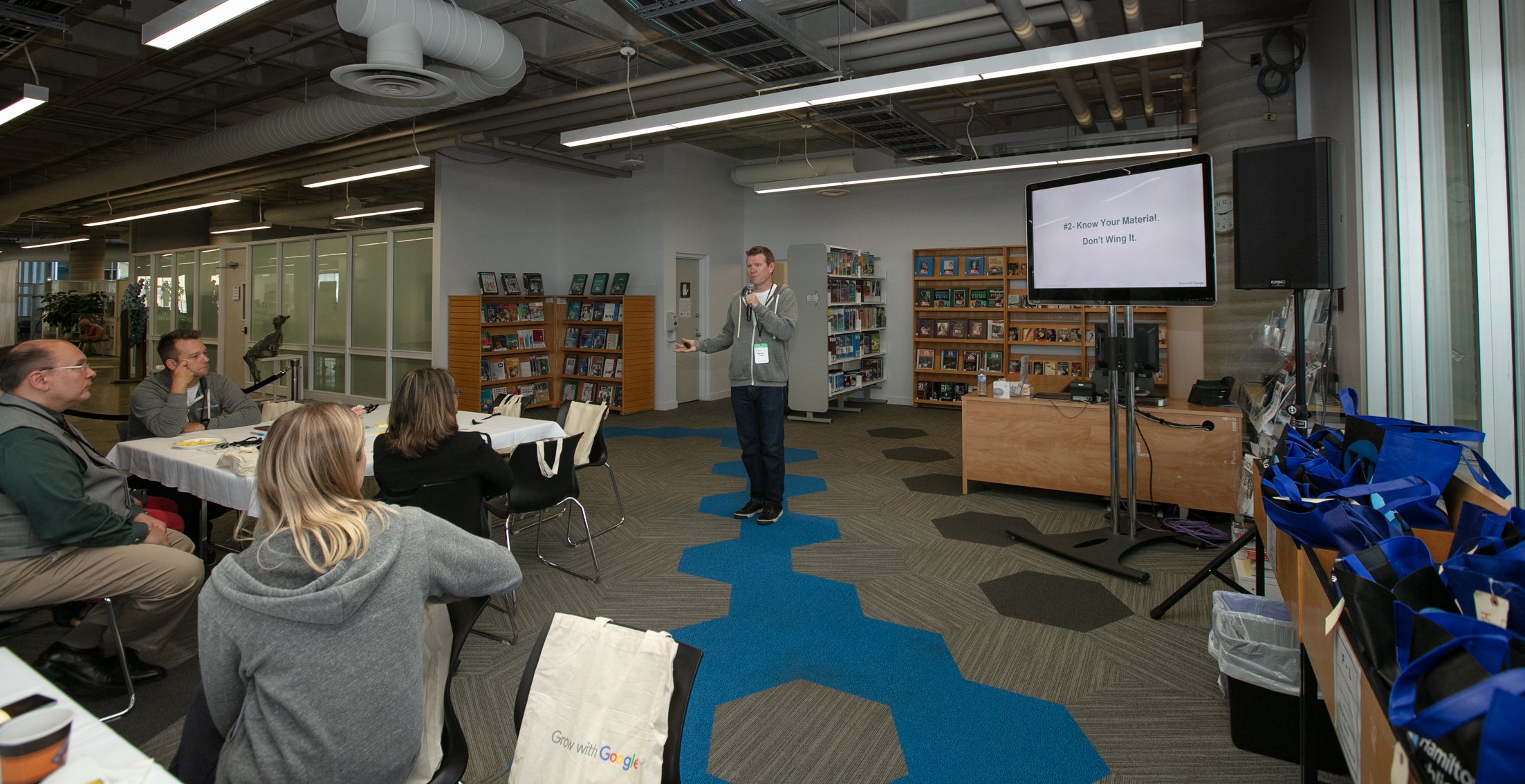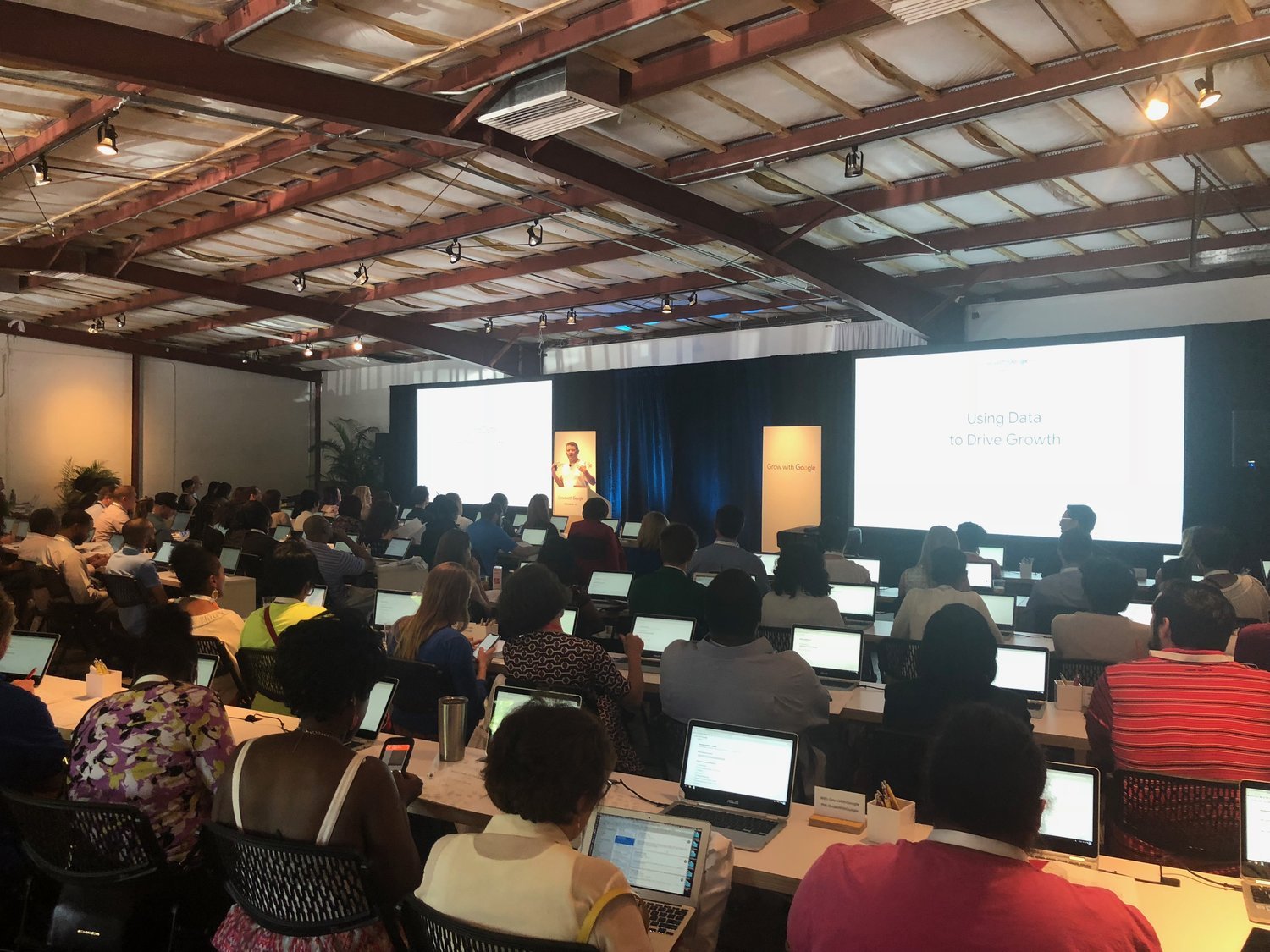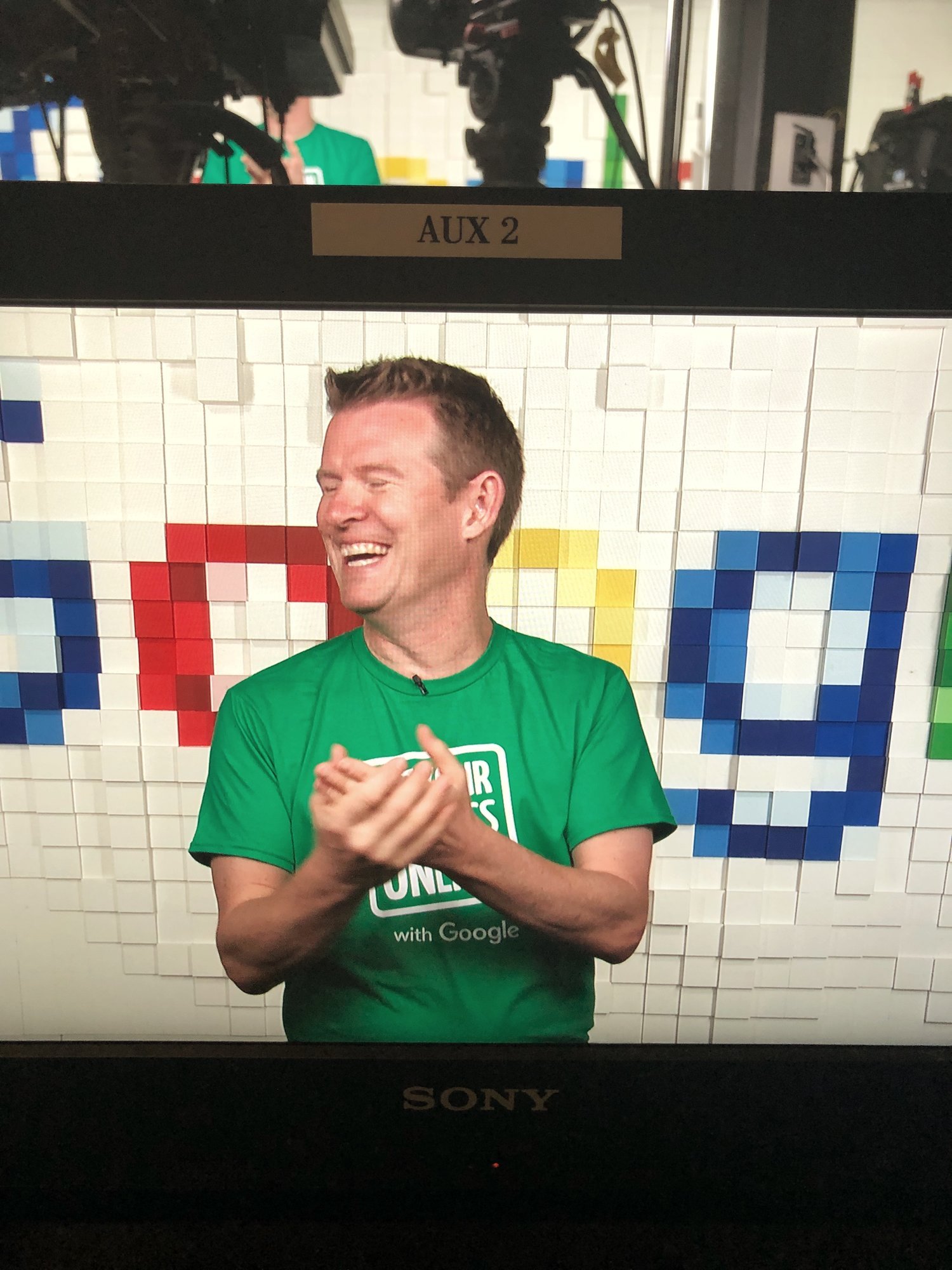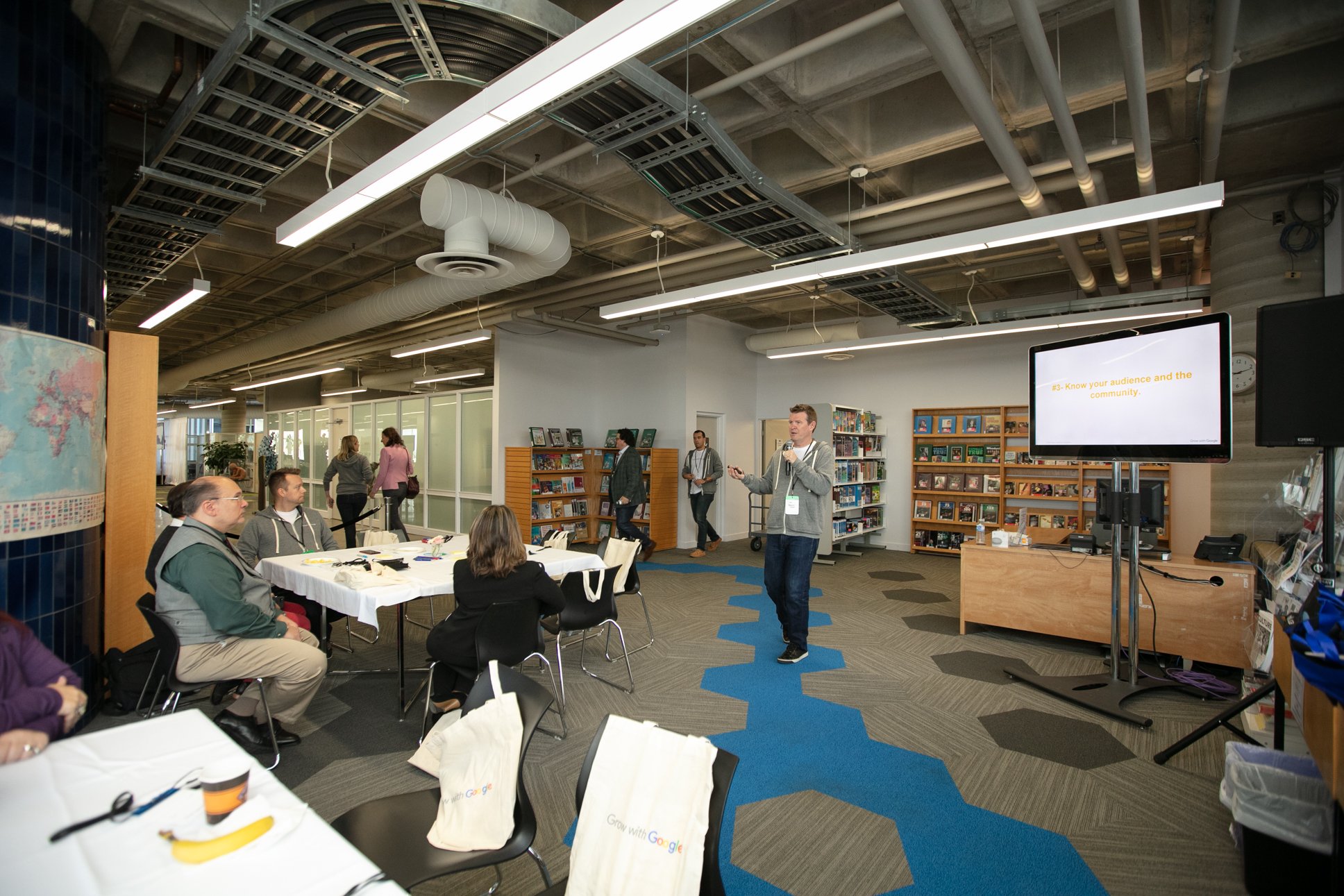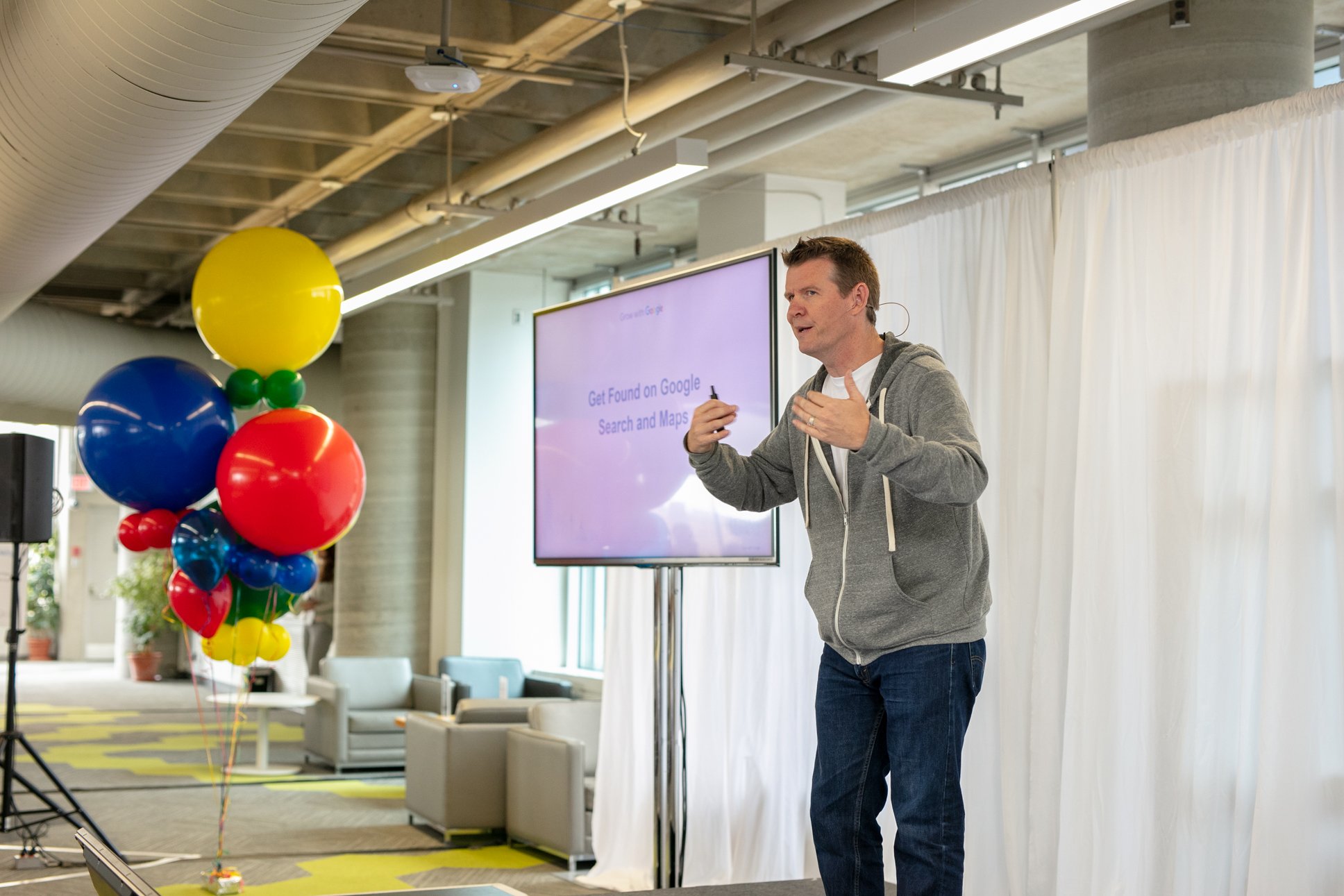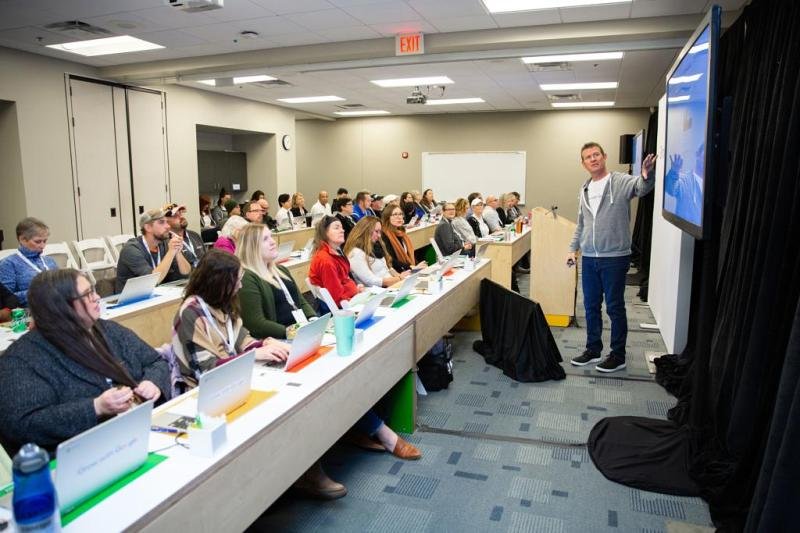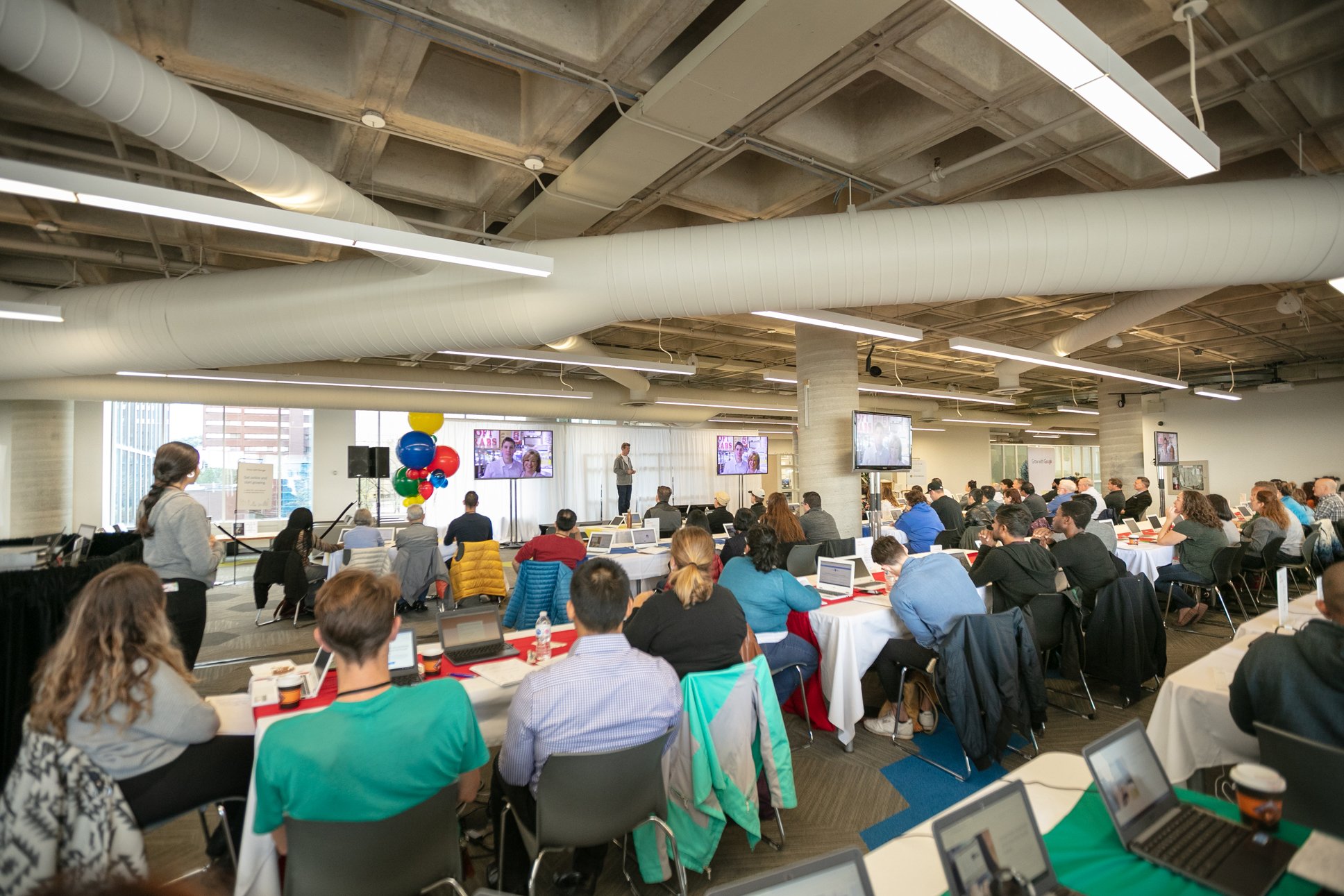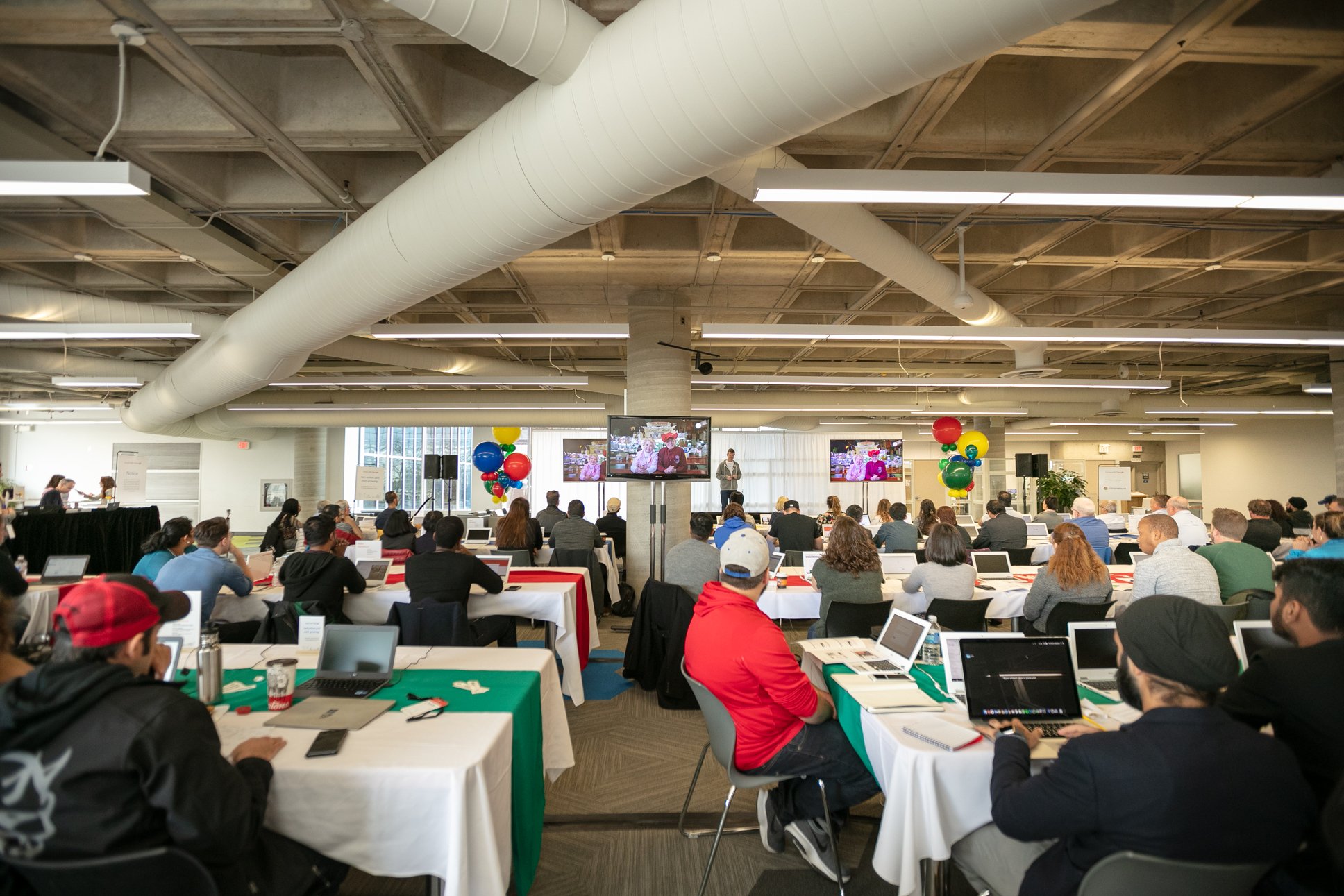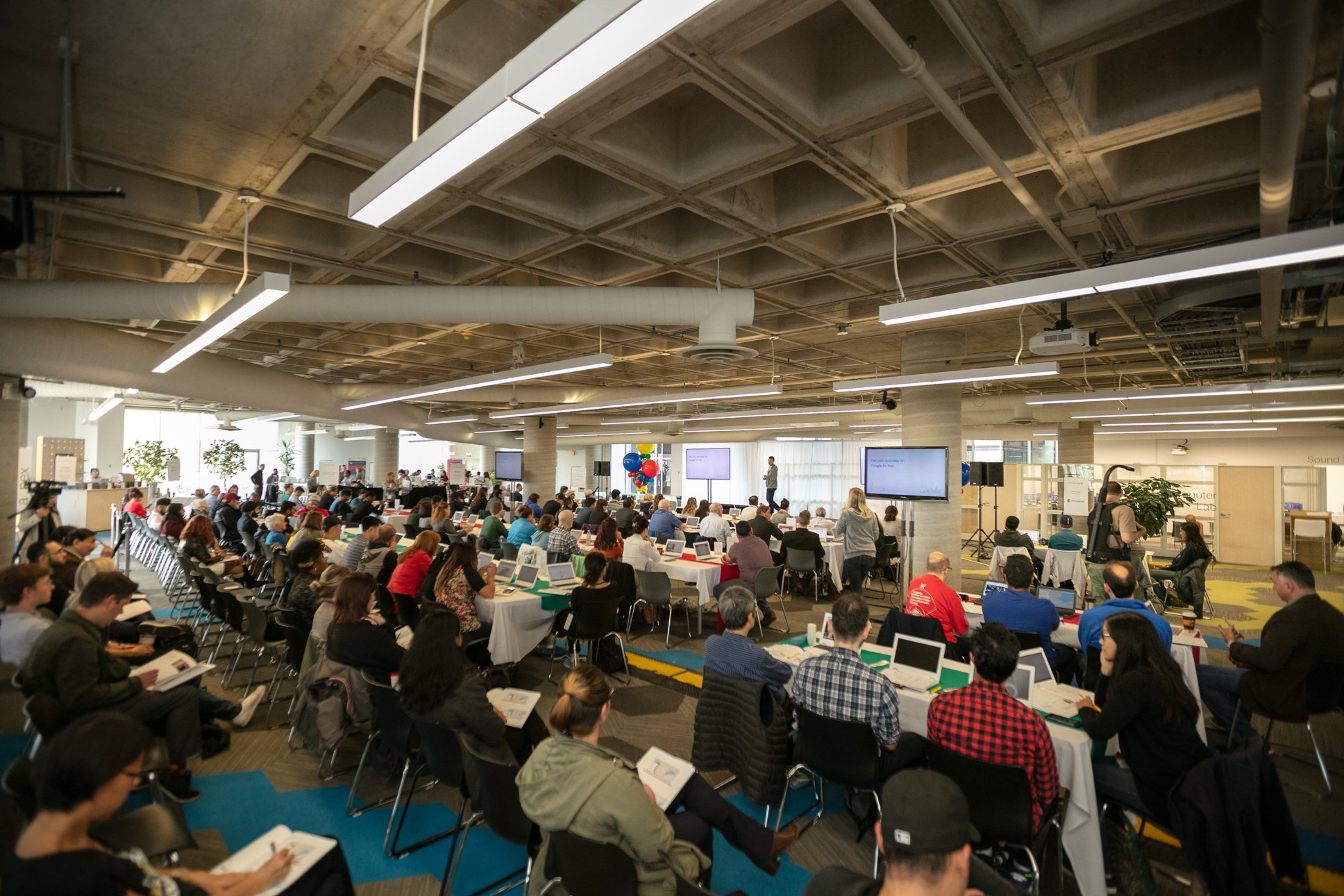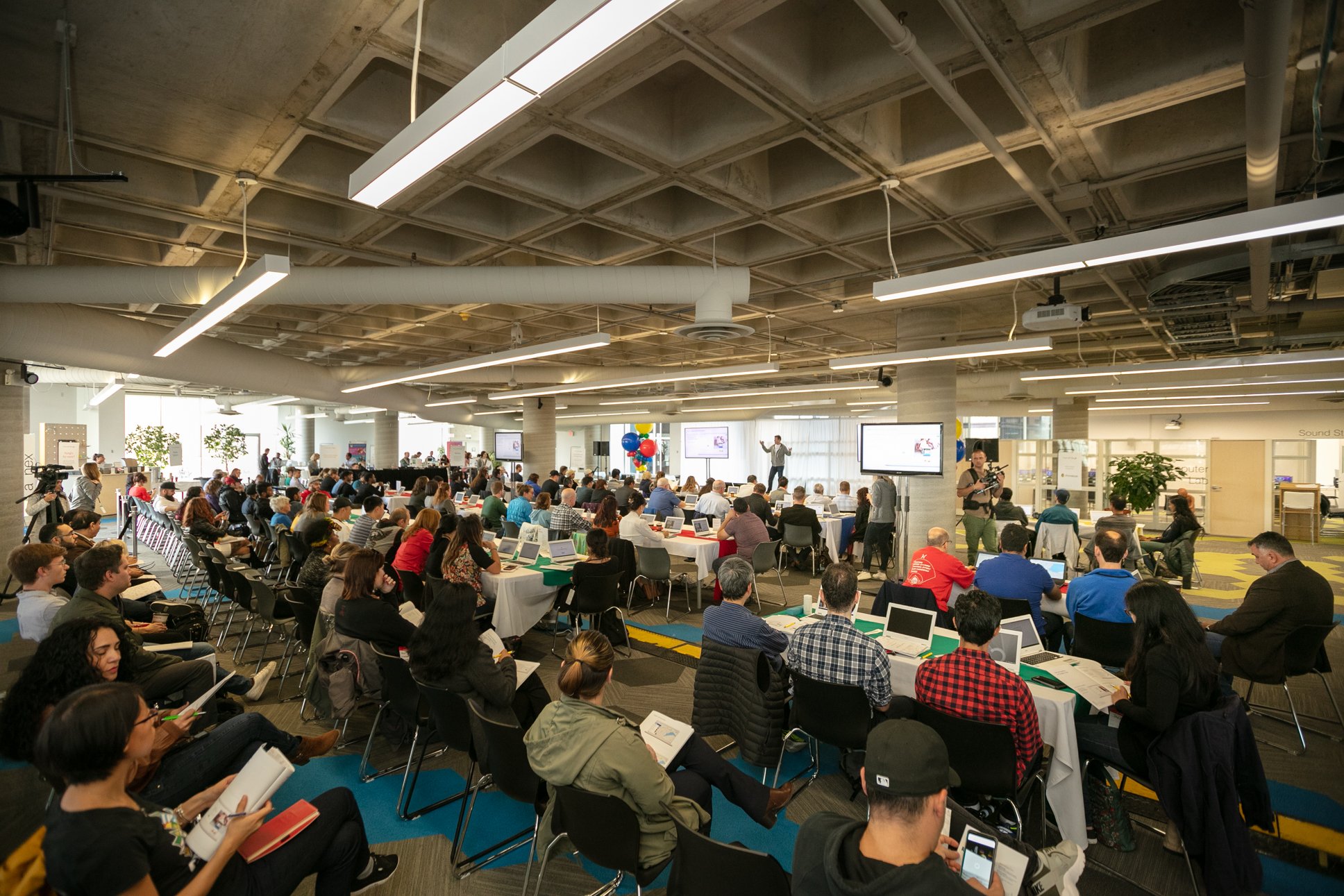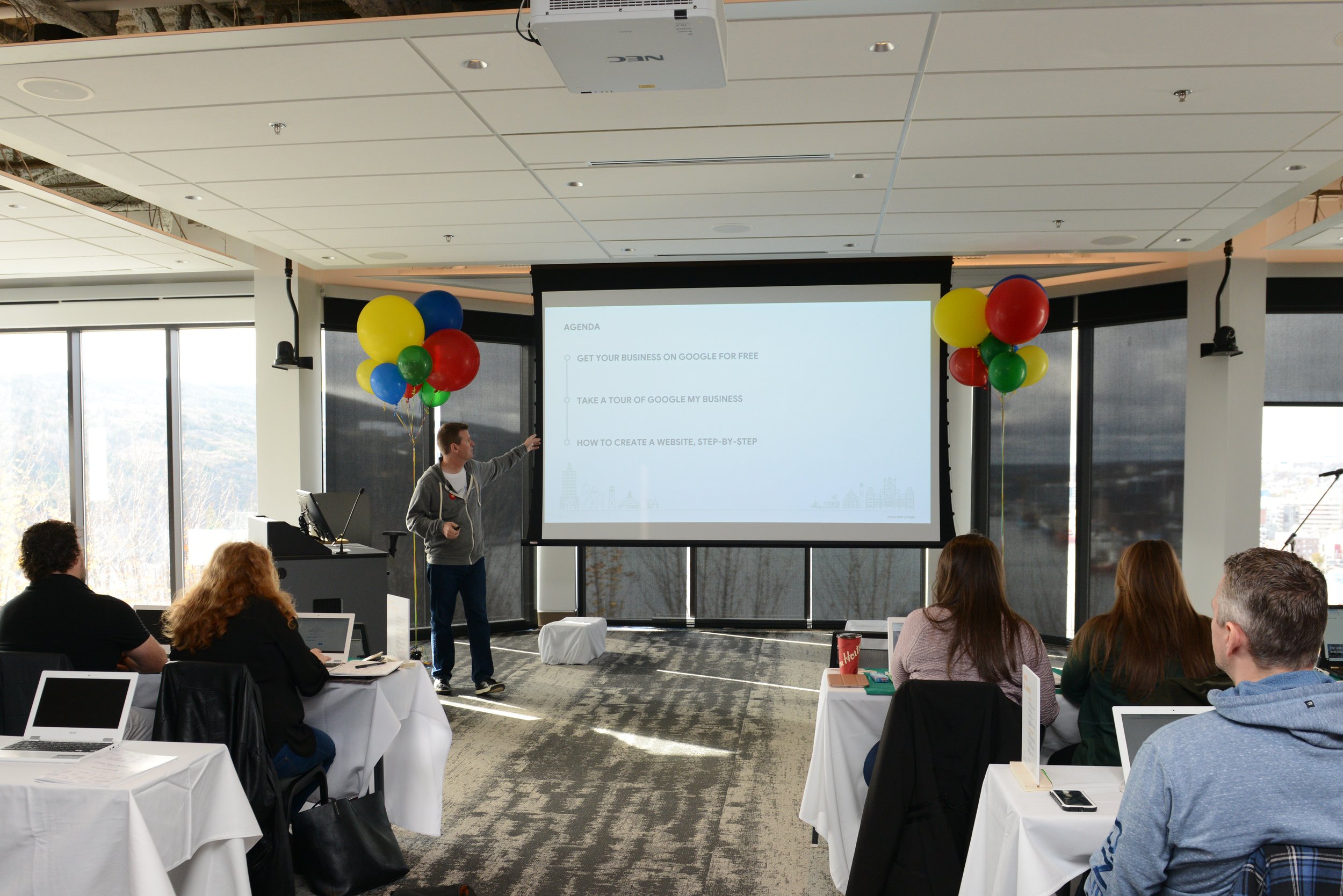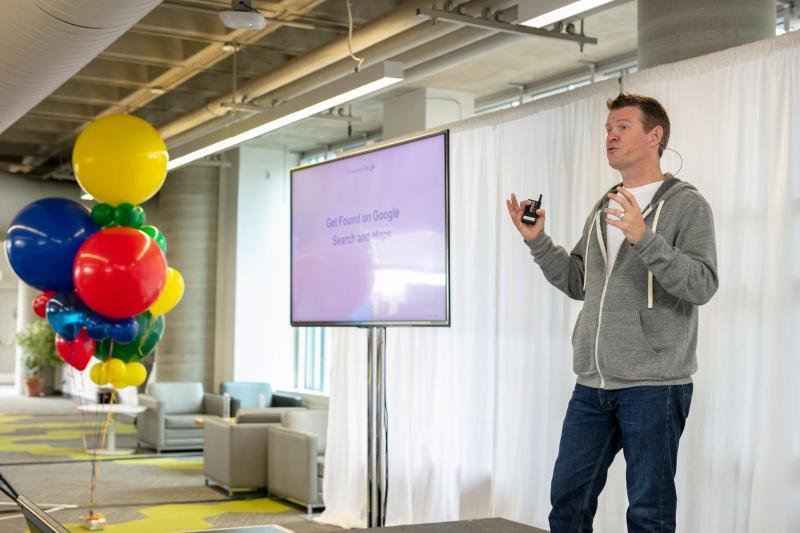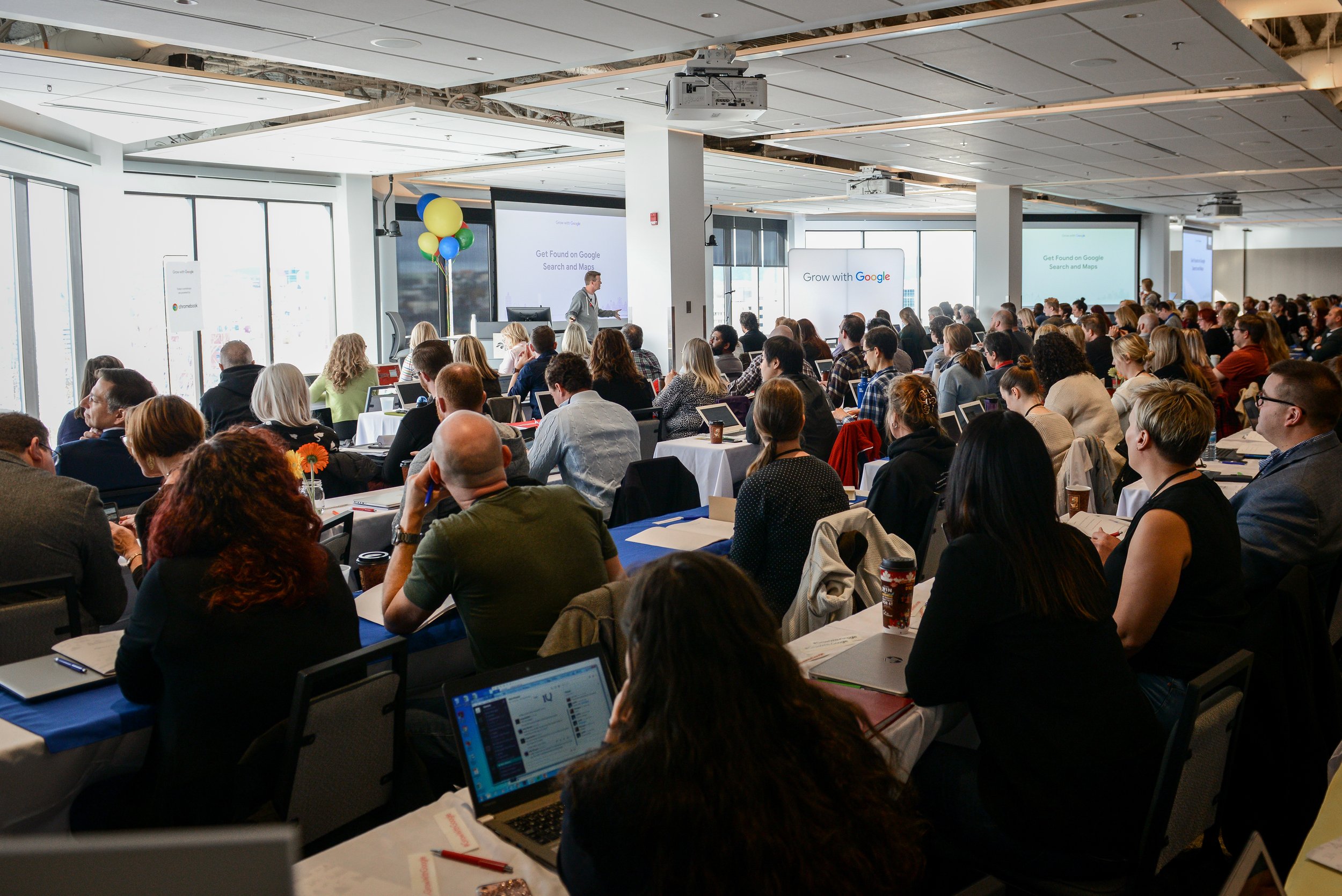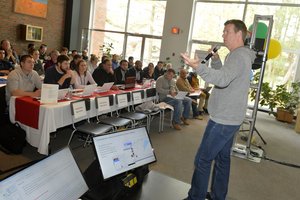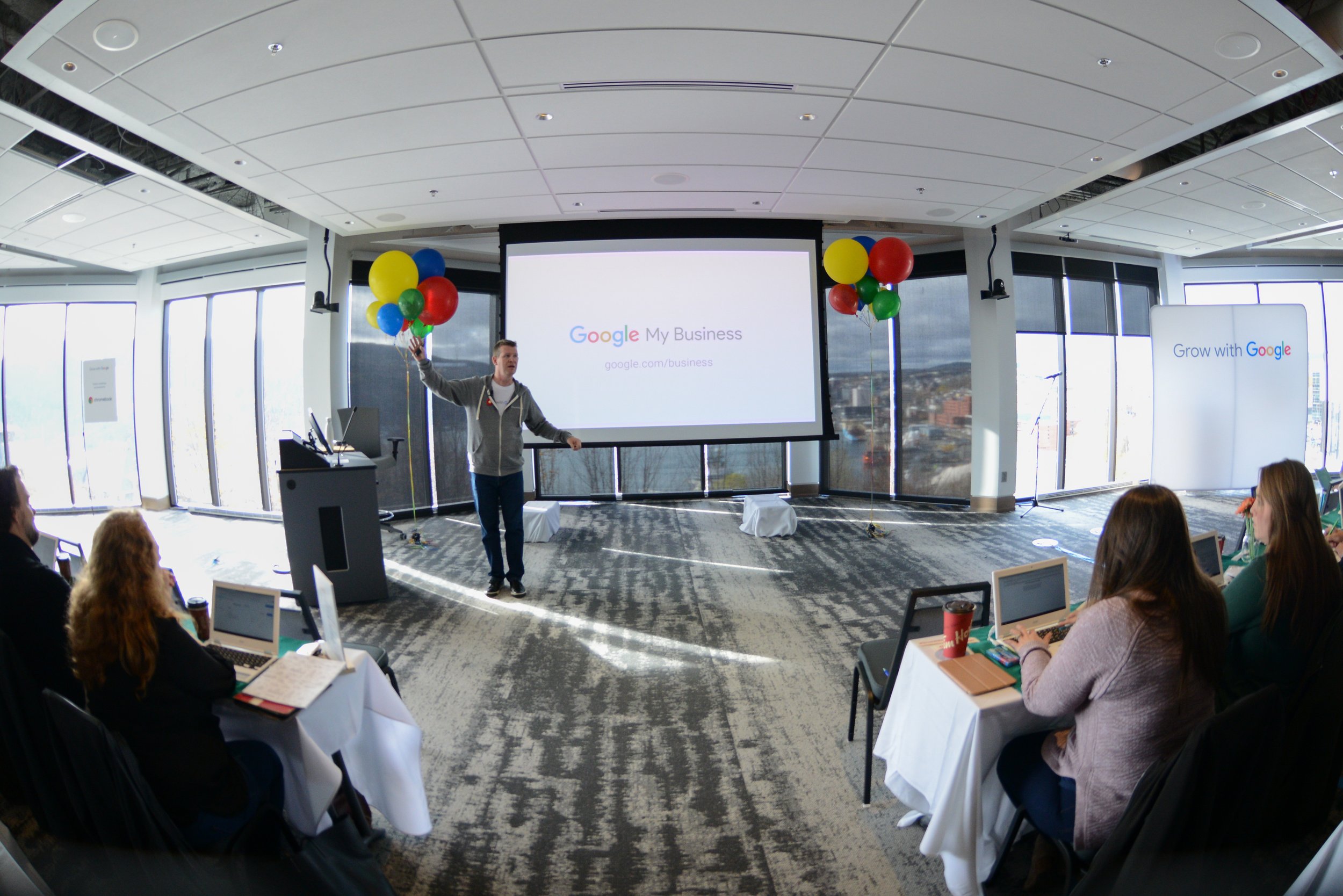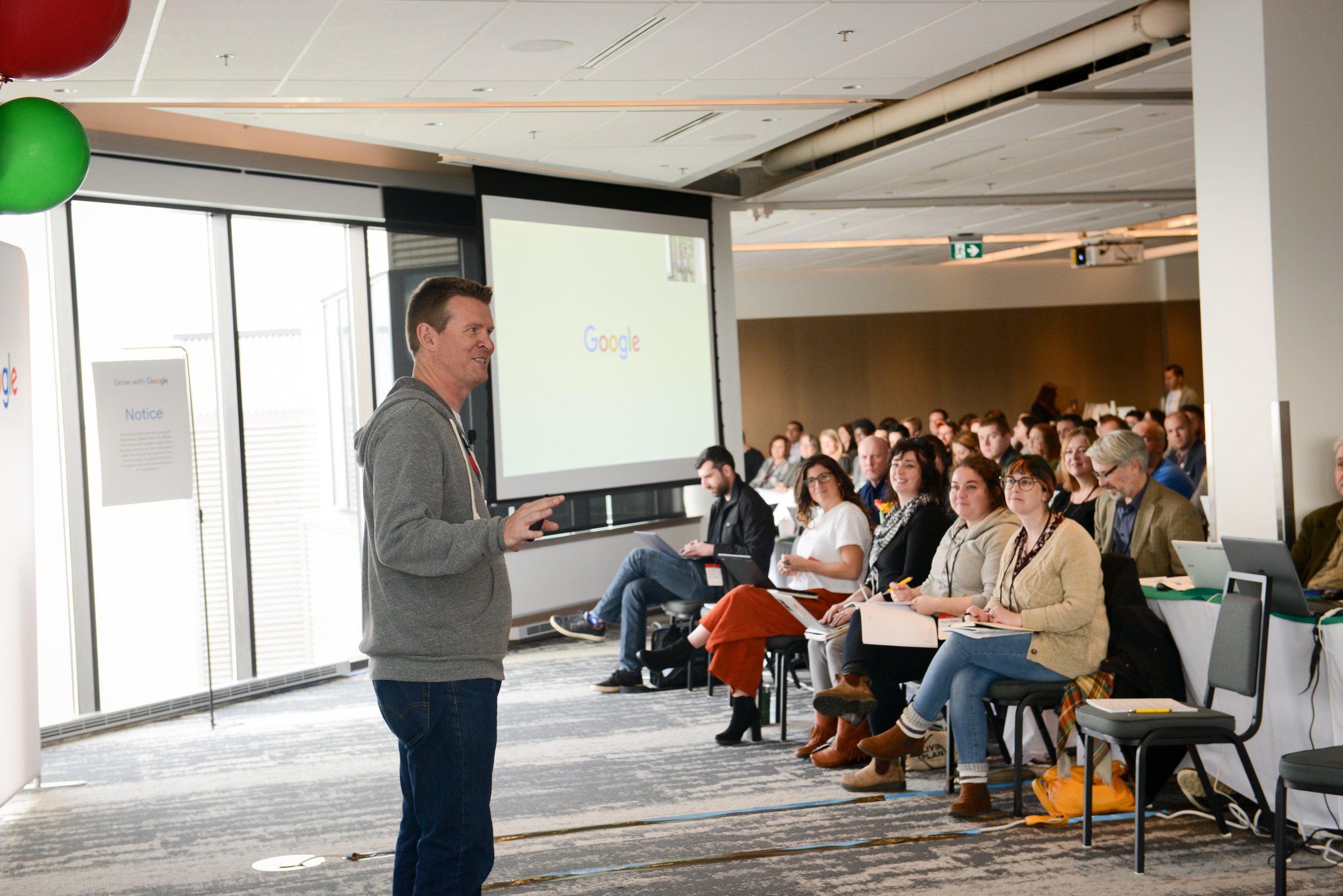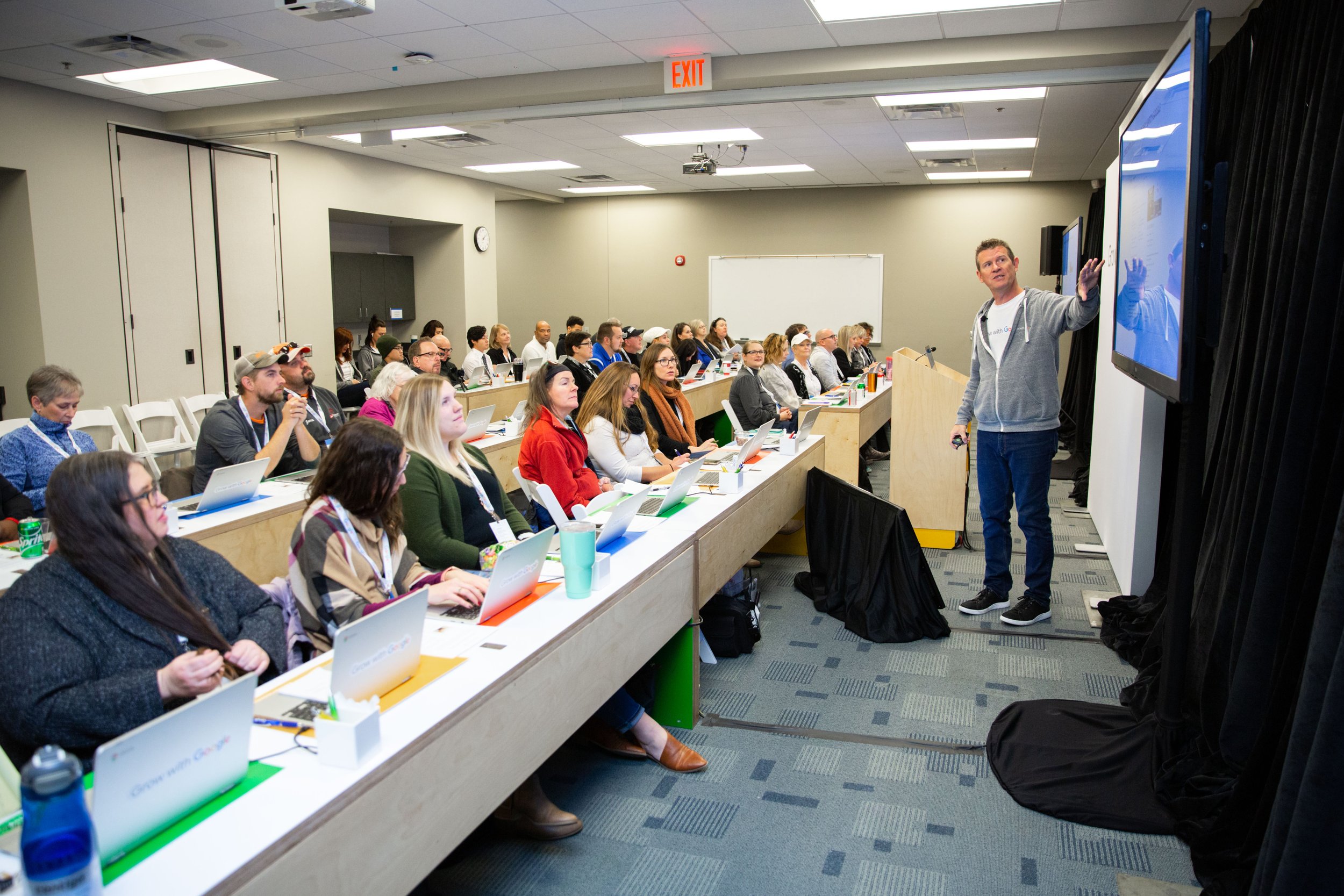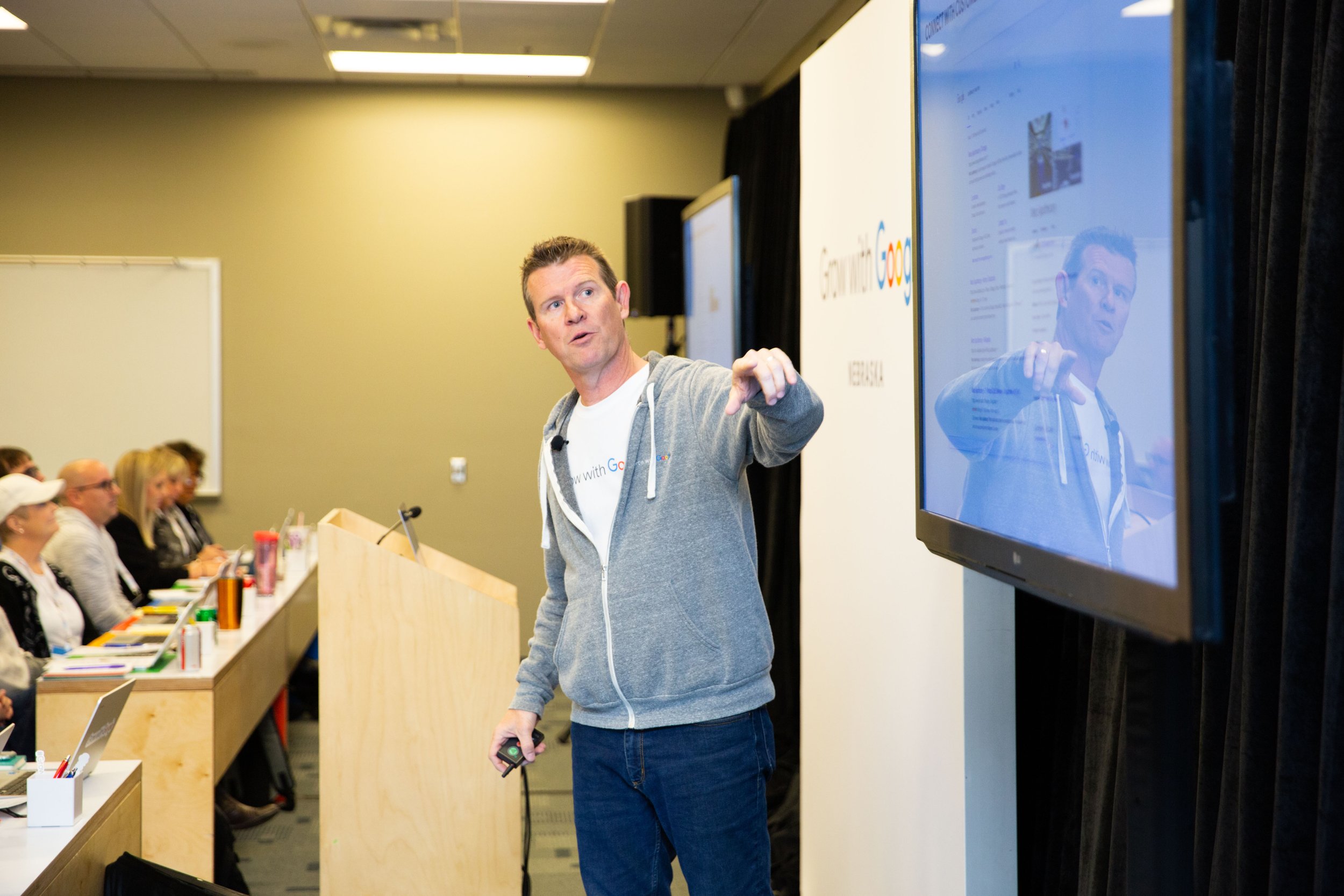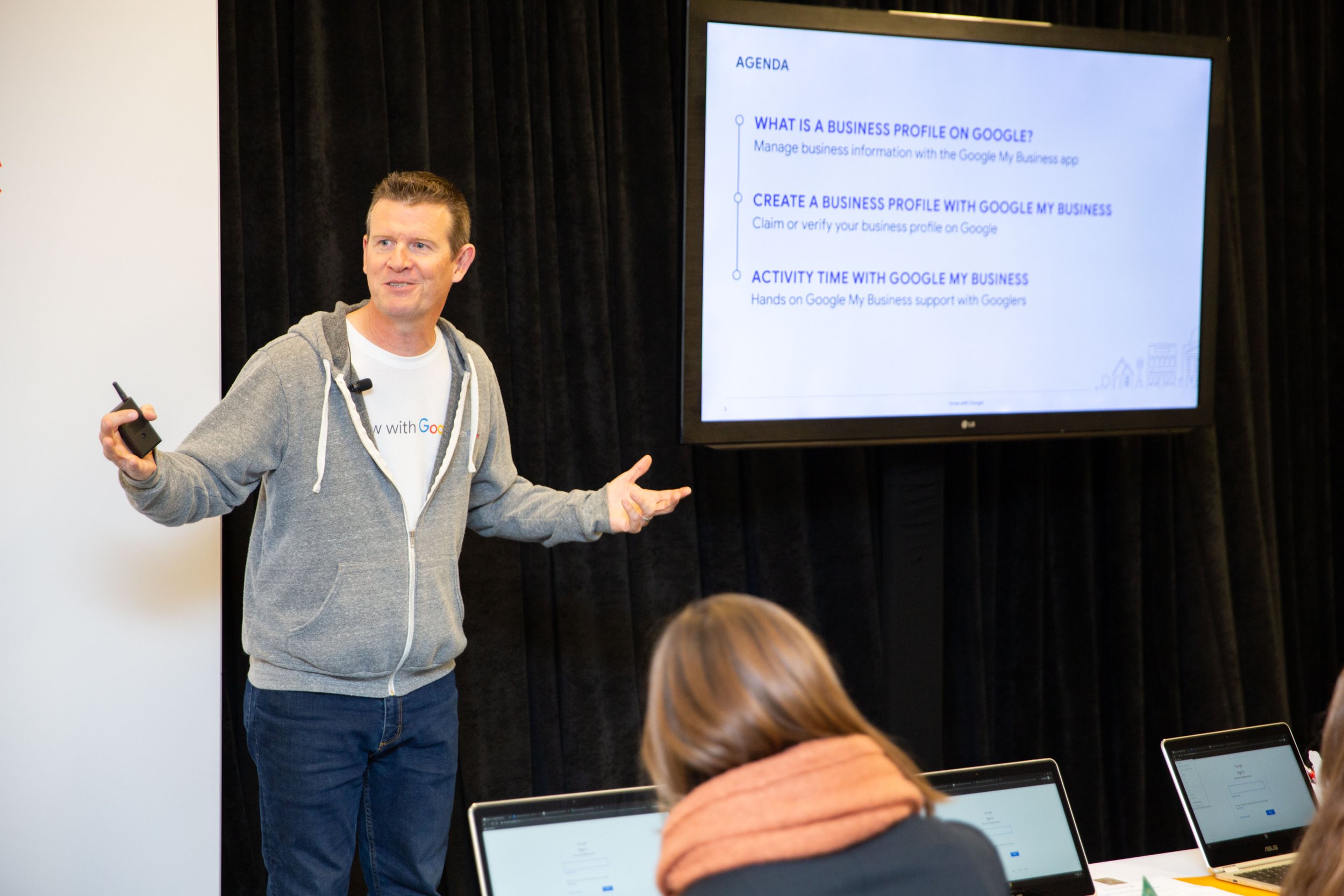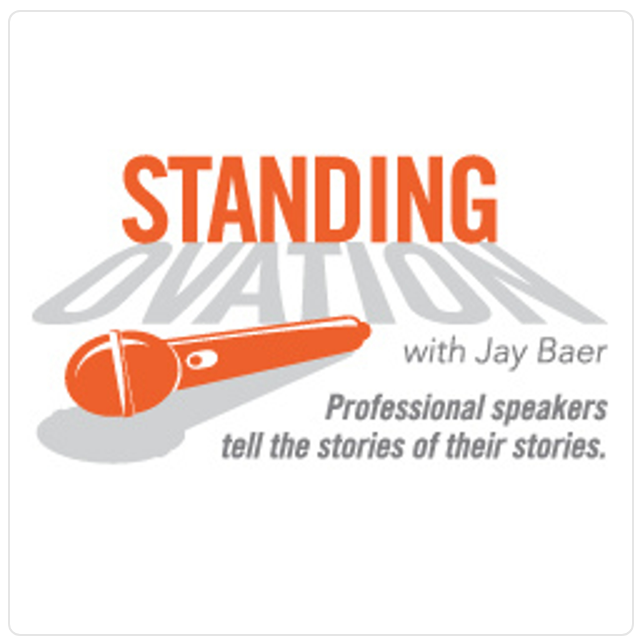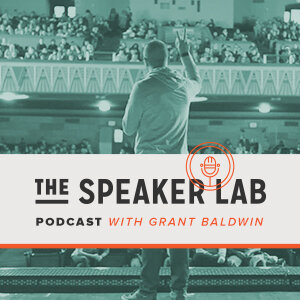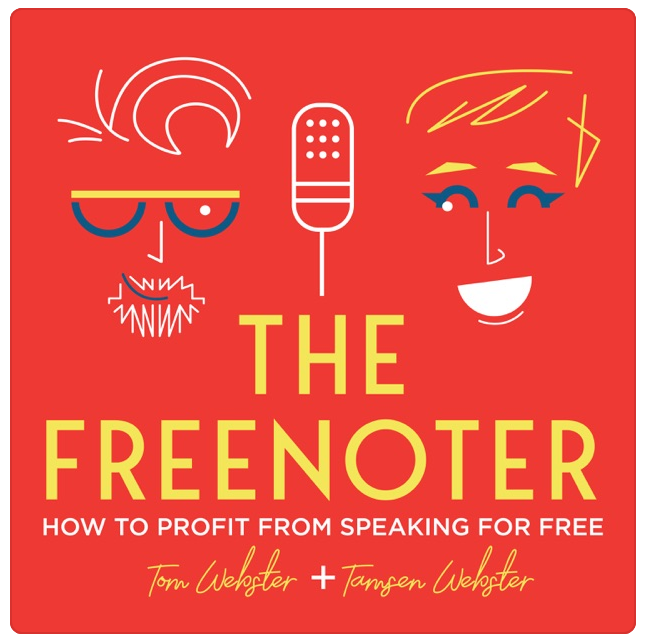It's hard to believe it's been over ten years since I first delivered my Improve with Improv presentation, now known as The Master Communicator's Secret Weapon. I’m teaching presentation skills now, too.
Please join me as I cringe and share a younger Dave Delaney delivering this presentation at Hubspot’s Inbound Conference in 2015.
I'm going to share my notes with you to help you make your next presentation way better!
Last year was the first time I'd had an AV team unable to load my presentation due to hardware issues, so I delivered an opening keynote to 500 people with no slides. No problem. As a keynote speaker and master communicator (if I don't say so myself), it's essential to rehearse and thoroughly know your material. I emphasize this when I'm teaching my clients presentation skills, but I digress.
Let's get on with the show!
Cringe along as you learn from my mistakes and lessons.
00:14 - Pacing back and forth is a clear sign you're nervous. I was nervous because my audience was in the hundreds, and I had to deliver a brand-new presentation in just 12 minutes.
00:57 - Maybe too old or too old-fashioned, but I used to call the clicker a remote. I stopped doing this ages ago, but it's best to use the most common language so audiences understand what you're talking about.
01:25 - I said too many "umms"; this is also a sign of nervousness. However, I have never found that audiences judge me because of this. It's better to be human than slick. Still, fewer umms are preferred.
01:56 - I still use the shocked woman image in the latest version as an ode to my original presentation version.
02:39 - The stiff drink slide has been replaced in different versions of this presentation; for example, I delivered it at the Alabama Counseling Association's annual conference and felt that alcohol might be frowned upon. Know your audience. Fun fact: I'm over five years sober.
03:08 - If you plan to interact with the audience by asking a question for a show of hands, don't ask multiple questions at once, as I did. Their arms will get tired!
03:45 - Mentioning my improv training at The Second City in Toronto, performing in London, and my troupe in Galway, Ireland, all helped to validate me. I used to struggle with self-doubt, and such humblebrags helped convince me that I belonged on the stage.
03:59 - I changed "key things" to "core concepts" because it sounds better and it's more important than simply things. I also changed "acceptance" to "lead with acceptance."
04:18 - I still use the chicken slide to talk about acceptance as I cluck around the stage (or on your Zoom meeting), but now I ask the audience to give me their best chicken impersonations, and it's a laugh riot. Plus, they learn firsthand about acceptance by accepting my request. Shout out to this fun audience at Rocky Mountain Total Rewards Association.
04:57 - I mentioned "Yes, and" and later changed this to "Nice, and" to fit into my Nice Method framework. Plus, we can't accept every idea at work, but we can use "Nice, and..." to empower our colleagues. Message me and I will explain this to you and give you some examples.
06:13 - I asked the audience at Inbound to give me an object, but I didn't mean literally. I felt bad as a woman in the front row eagerly jumped up to give me her notebook. I should have asked her for a fictitious object in hindsight, but I accepted the first one I heard from a gentleman in the back who yelled, "basketball!" Her eagerness was commendable, and I still feel bad for leaving her out. Sorry, nice lady.
06:24 - My improvised basketball dribbling mishap was fun in retrospect. Because I usually deliver this presentation for businesses and corporate events, I now ask for a random object you find in an office. Want to know a secret? It's always a stapler! Weird, right?
07:03 - My L.I.S.T.E.N. active listening acronym slide was designed terribly (by me). When my friends at Ethos3 redesigned my presentation, it was a game-changer. Hire professionals to create your slides. I highly recommend Ethos3; tell them Dave sent you.
07:52 - My wife would still agree that I talk too much, but we now know why, and I'm working on it. :)
09:30 - I mentioned using the bathroom as an excuse to escape a boring networking moment. It got zero laughs, and I haven't said it since. I learned this by rewatching the video countless times to review my performance. Bring a friend to record your presentation and review it. Bonus points if you watch it with no sound, then listen to it. You'll see and hear all sorts of areas for improvement.
10:03 - I rehearsed Improve with Improv countless times before speaking at Inbound, but I was concerned I might go long and only had twelve minutes. The Master Communicator's Secret Weapon runs 45-60 minutes and includes an optional breakout improv workshop. Because I noticed I only had two minutes left, I started speeding up and unintentionally added "right" and "ya know" after many sentences as filler words. I am anal about finishing my presentations on time out of respect for the conference planner, director, audience, and the next speaker starting after me. Going long can throw the whole conference off, and I never want to be that guy.
10:10 - When speaking about not fearing failure, I mentioned a jazz band example and then added Henry Rollins from Black Flag. These references were really for me because I wanted to meet other old punk fans at the conference. Still, I was there for the audience and have adjusted the presentation since to discuss how innovation occurs when we overcome our fear of failure. Did you know Nintendo started as a card game, and Sony made rice cookers?
11:12 - I removed the Slides. Advancing. On. Their. Own. I thought the visual gag would get laughs, but it fell flat. Kill your darlings and cut what doesn't work.
12:23 - After writing the script for Improve with Improv, I self-published it as a mini-ebook illustrated by my friend Daniele Rossi, and I offered it to the audience as a free download. Ten years later, I use a QR code for my audiences to receive a summary cheat sheet, an ebook, or other resources. I include a URL and my email in case of technical issues. Use this link and grab a free copy while you're here.
12:34 - At the close of my presentation, I invited folks to reach out on Twitter. Now, I wouldn't recommend X to a soul. Times sure have changed since 2015.
ONE LAST THING
One last big lesson I've learned over my nearly twenty years as a professional speaker is that we must sell to the problem and not the solution. More teams are seeking ways to overcome the fear of failure, improve listening skills, and become accepting leaders. They aren't searching for improv, and it's my job to reveal how the core concepts from improv are what make it the master communicator's secret weapon. Please feel free to reach out, and I'll tell you more.
I hope this helps you. I found it cringeworthy to re-watch and take notes on these, but I hope you find them helpful in improving your future presentations. Need help with your communication skills? I know a guy.

